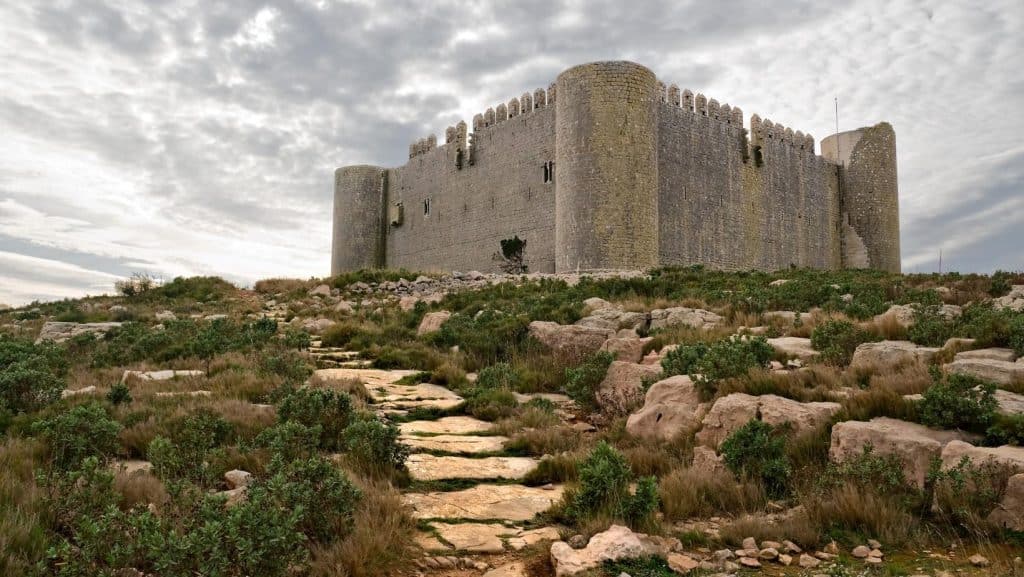Rethinking the Middle Ages
“Sadly, however, it is not serious historians who, for the most part, form the historical consciousness of their times; it is bad popular historians, generally speaking, and the historical hearsay they repeat or invent, and the myths they perpetuate and simplifications they promote, that tend to determine how most of us view the past."
David Bentley Hart, Atheist Delusions: The Christian Revolution and Its Fashionable Enemies
The Middle Ages conjure a host of images: knights and ladies, great kings reigning in ceremonial pomp from mighty castles, massive cathedrals and an ever-present church; but also squalor, misery, injustice, and the persecution of science.
The truth is, we look back on the Middle Ages with both a fascination that exerts a powerful attraction and a disdain that makes us wrinkle our noses. Much depends on whether we have in mind Robin Hood and King Arthur or the Black Death and Galileo.
Whatever our thoughts about it, in reality, this large swath of human history (1000 years!) was a time of intense innovation, intellectual curiosity, and a synthesis of faith and reason that has been hard to find since.
The riches of the Middle Ages are deeply relevant to the world we live in today. This course will look at important aspects of Medieval life and society (cosmology, feudalism, daily life, science and technology). Our goal is, as much as possible, to recover something of the voice and mindset of an entire epoch in human history that is often caricatured to the point of parody.
We will read short, representative excerpts of Medieval texts, and examine our best understanding of the conditions on the ground in Medieval Europe.
This course will be useful to those who have to teach the Middle Ages, but also of general interest to those who have ever known the longing to hear the twang of Robin Hood's bow or to quest alongside the knights of the Round Table.
Mondays, 7:30 - 9:00 (CST)
February 6 - March 27, 2023
registration deadline February 3, 2023
$400 / student
Week One: Medieval Myths
We will identify various explicit and implicit myths about the Middle Ages, including the name itself, and some of the prejudices out of which they come. We will also discuss some of the historical challenges: when were the Middle Ages, what can we actually know, how good/representative are our sources, etc.
Week Two: The Light Ages: Medieval Cosmology
It is ironic that we, who believe the realms outside of our planet to be cold, dark, and silent, should call the Middle Ages dark, when they believed those same realms were radiant, warm, and full of song. This week we will be dazzled by the beauty of the Medieval cosmos.
Week Three: Understanding the Medieval Mind
If there is anything common to an age that justifies us calling it an age, it is in the way that people think. We will try to get inside the Medieval mindset. This means attitudes towards life and its major institutions (society, church, family), their sense of humor, and their forms of entertainment.
Week Four: Feudalism
“In democracy, it’s your vote that counts; in feudalism, it’s your count that votes” (Mogens Jallberg).
Week Five: Church, Town, and Country
We will shadow a countryman, a townie, and a noble through their daily routine.
Week Six: Science and Technology
The Middle Ages saw great advancements in a variety of fields, and the invention of world-changing technologies. This week, we take a look at the highlights.
Week Seven: War Stories
Some of the most famous wars in history took place during this period; but also, some of the coolest, even though they are not well known. We’ll look at conflicts from the Crusades and the 100 Years War to the Battle of Tours and the Battle of Grunwald.
Week Eight: Theology, the Queen of the Sciences
An omniscient baby Jesus? Bread that defies the laws of physics? An angelic dance party in your sewing kit? We will close with a look at some of the more interesting features of Medieval theology, and how even the most speculative of questions are never trivial.
-
Participating in a course led by Dr. Junius Johnson is a wonderful journey of exploration, seeking hidden gems in unexpected places. It is an opportunity to learn to look deeper than the surface, both in reading and in the mundane of life. A delightful feast for the mind that lasts far beyond the actual banquet.
-
I came to the C.S. Lewis’ Cosmic Trilogy class with an expectation of academic rigor, thoughtful teaching, and imagination-opening conversation. Dr. Johnson delivered this and more! He brought these texts alive in a way that I could not have imagined, and he made me think about implications for my life. This class took me far beyond a simple reading of the text, into a world of wonder and a desire for deeper understanding of the great mysteries of our world and the stories that we tell about them.
-
Every time I hear Junius Johnson speak, I walk away asking: "Did I forget how exciting and joyful the life of the mind can be?”
